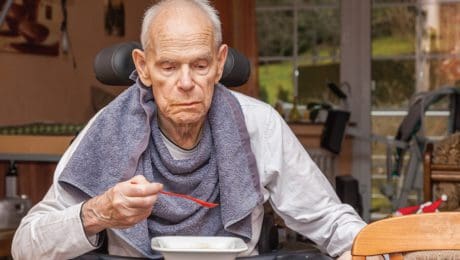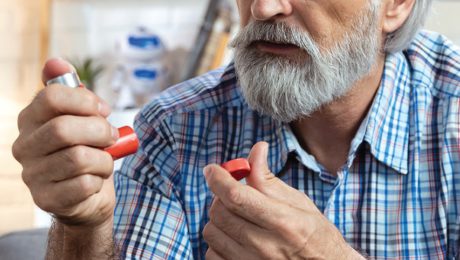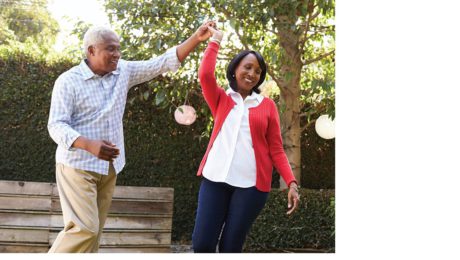STARTING A FITNESS ROUTINE
STARTING A FITNESS ROUTINE
STARTING A FITNESS ROUTINE
When thinking of starting a fitness regime, many people may envision smelly gyms, sweaty feet, and plenty of grunting and pain. Often lofty goals, such as races or competitions, sway people from starting a sensible routine. Fitness goals should be about improving our health and how we interact with the world, not about increasing our status. It’s never too late to start a fitness commitment. Exercise reduces risk of cardiovascular disease, hypertension, type 2 diabetes, osteoporosis, obesity, colon cancer, depression, and breast cancer. It also decreases the risk of falls and fall-related injuries. Consult their physician before having an older loved one start a new fitness program, especially if there are health concerns. Some tips to map a workout:
- Aim for just 15 to 30 minutes a day to start. Break workouts up into ten-minute increments throughout the day, if necessary.
- Make sure that they are drinking plenty of water before, during, and after their session.
- To minimize fall risk, ensure appropriate footwear for the activity. Start and end the workout with slower movements and activities.
- Don’t let them overdo it. The goal is not pain and exhaustion.
ACTIVITIES
Categories of Exercise
There are several types of activity to consider working into a weekly schedule.
Aerobic
Aerobic exercise is just as the word implies, good for the oxygen exchange between the lungs and heart. Aim for at least two hours of moderate aerobic exercise or one and a half hours of vigorous intensity each week. Spread this time over 3-5 days. Remember that vigorous for them may be significantly less than vigorous for you. Especially if they have a competitive nature, it should be stressed that they do not overdo it. Some examples of aerobic activity that might appeal to your loved one are:
- Brisk walking
- Biking
- Jogging
- Dancing
- Swimming
- Aerobic classes
- Yard work
- Tennis
- Golf (without a cart)
Questions for the Doctor Before Starting a Fitness Program
- Are there exercises or activities they should avoid?
- Is their preventative care up to date for example, tests for osteoporosis, diabetes, or cardio-fitness?
- How do any health conditions affect their ability to perform the selected activities?
- What modifications might be necessary to safely perform the activities?
Source: National Institute on Aging
STARTING A FITNESS ROUTINE
Categories of Exercise (continued)
Muscle Strengthening
Having stronger muscles has been proven to improve bone density. Aim for at least two days a week. The focus can be varied from session to session to include legs, hips, back, chest, abdomen, shoulders, and arms. To help build muscle, have your older adult start with a weight that they can safely lift for eight repetitions. The repetitions should be slow and controlled three seconds to lift the weight, hold for one second, then lower for three seconds. Breathe in as the weight is lifted and out as it’s lowered. Do these eight to fifteen times and then take a rest. If fifteen seems easy, consider increasing the weight by a pound. Some good muscle strengthening tools and activities include:
- Weight machines
- Handheld weights
- Yoga
- Exercise bands
- Calisthenics
- Tai Chi
- Digging, lifting, and carrying as a part of gardening
Balance
More than one third of senior citizens suffer from fall-related injuries. Improving balance should be a core goal for any exercise program. Aim for three or more days a week. Ensure that there are adequate safety measures in place, such as things or people to hold onto. Some easy exercises to consider include:
- Standing from a seated position
- Backward walking
- Sideways walking
- Heel walking
- Toe walking
- Standing on one leg
Stretching
Stretching is important and should be done at a minimum at the end of every workout. Do not allow your loved one to “bounce” the stretch or to stretch further than they can easily go to feel a slight tug. It should not hurt. Improvement will happen naturally.
Source: University of Nebraska, Institute of Agriculture and Natural Resources. National Institute on Aging, Harvard Medical School, and CDC
Motivation
It is never too late to start working out. A recent study showed that many of the losses in strength, flexibility, and stamina could be reversed, even in the frailest of participants. The study followed 100 participants, aged 72 to 98. They did resistance exercises three times a week for ten weeks. They showed marked improvement over their sedentary counterparts, being able to lift more weight, climb more stairs, and walk faster.
Powered by WellSky
- Published in IN HOME CARE
ORGANIZING FINANCES
POSITIVITY AND HEALTH
“Optimism is the most important human trait, because it allows us to evolve our ideas, to improve our situation, and to hope for a better tomorrow.” – Seth Godin [American Author]
HEALTH
Our minds are powerful tools for creating health and wellness. While studies haven’t identified precisely why positive people are healthier, researchers suspect that it is because people who are more positive process stress better and move through hard situations more easily. Negative attitudes and feelings of helplessness can create chronic stress, which can, in turn, damage the immune system. Anger and hostility are related to health conditions such as high blood pressure, cardiovascular disease, digestive disorders, and increased instances of infection. Surprisingly, the tendency toward a positive or negative outlook does have a genetic component. However, this doesn’t mean that people can’t improve their outlooks. Some tips to improve your outlook include:
- Smile more. Even fake smiling can reduce heart rate and blood pressure during stressful situations.
- Practice reframing. Instead of stressing about a current situation, try to find a positive aspect to it.
- Build resiliency. Having friends and family nearby to share the situation with, accepting that change is a part of life and finding new ways to adapt, and feeling like you have the control to change the current situation are all ways to embrace whatever life throws your way.
- Share your feelings. Often, we spend too much time in our heads. Sharing our feelings with a trusted other can help find a different way to look at a situation. If others are mired in their current negative situations, encourage them to share their fears.
Source: Johns Hopkins Medicine. University of Minnesota, and University of Wisconsin Health
While loved ones might resist the idea of optimistic thinking, there are health reasons to ask them to reconsider. Positive thinking can lead to:
- Better sleep
- Increased life span
- Lower levels of distress
- Lower rates of depression
- Greater resistance to the common cold
- Better cardiovascular health
- Better coping skills during extreme hardship
Tips for Creating a More Positive Outlook
- Get better sleep.
- Take a walk outside.
- Follow a healthy lifestyle.
- Practice positive self-talk.
- Surround yourself with positive people.
- Be open to humor or create a place for smiling and laughing every day.
- Consciously work on experiencing three positive emotions for every negative one.
- Actively evaluate your self-talk at various points during the day to see how you’re doing.
Source Mayo Clinic and University of Wisconsin Health
Powered by WellSky
POSITIVITY AND HEALTH
HEALTH
Are you a negative or positive thinker?
Listen to your own self-talk- that endless stream of unspoken thoughts that goes through your head. Some forms of negative self-talk to watch out for include:
- Filtering. This means magnifying the negative aspects of a situation and not acknowledging the positive. For example: Your loved one had a good night’s sleep, a fun phone call with their grandchild, and took a walk on a beautifully sunny day outside. But then they tripped and fell with minor injuries. At the end of the day, did they say it was a “bad” day because of the fall or a “good” day because of the rest?
- Personalizing. When something bad occurs, you or your loved one automatically takes the blame. Sometimes no one is to blame.
- Catastrophizing. You or your loved one uses language that makes things out to be much worse than they are, or assumes that because one bad thing happened, it’s all downhill from there. Single events in the day are rarely the “worst” or “most horrific.”
- Polarizing. You or your loved one sees things as either good or bad and not the huge gray area in the middle. This leads to feeling like one is only perfect or a failure; healthy or dying tomorrow, capable or completely incapacitated.
If you are seeing these tendencies in your loved one, you should take care to address the subject, as they are more likely to see it as an attack and apply all of the above thought processes to that interaction.
Source: Mayo Clinic
Positive Self-Talk
- Affirm daily what is good about you.
- Remove the words “never” and “always.”
- Express gratitude – either aloud or in your head.
- If you make a mistake, take a moment to forgive yourself.
- Don’t say anything to yourself that you wouldn’t say to someone else.
Source: Mayo Clinic
Powered by WellSky
- Published in IN HOME CARE
POSITIVITY AND HEALTH
TELEVISION AND SENIORS
ACTIVITIES
It might surprise you to learn that older adults watch more television than younger people do. Watching TV comprises most of the leisure time for adults aged 70 to 105 years old. Television can be an avenue to learning new things, connecting with the world, creating a diversion, and providing some light entertainment. However, it can also supplant physical or recreational activities and real-world interactions.
Pluses and Minuses
If you are mindful, there are certainly benefits to TV for our older adults. As they become less able to go out to movies, concerts, or spectator sports, TV can fill this void. While some sitcoms and light viewing can help to relieve depression, sometimes the news or similar shows can make a depressed mood worse. It is important to pay attention to what our loved ones are watching and find a suitable balance.
The most notable down-side to excessive TV watching is some decrease in mobility. In general, a sedentary lifestyle choice can be detrimental to bone health, cellular/immunity function, and cardiovascular efficiency. Excessive TV use has been linked with a greater risk for Type 2 diabetes, obesity, lower life satisfaction, and an increased risk for dementia. Excessive TV viewing has also been linked with cognitive decline. This can be because viewers are not spending as much time doing things that can keep their minds sharp such as reading, playing board games, talking with friends and relatives, or working on puzzles. If they eagerly engage in conversation with you during a show, it can be an indication to you that they are simply using the TV to pass time and would prefer another outlet. It can help both you as the caregiver and your loved one to spark conversations based on the shows they are watching. Use open ended questions like “What decision would you have made in that situation?” or “When was the last time you did x activity?” or “Who does that character remind you of?”. You can also use a board game or book that is depicted in a show as a cue to suggest playing that game or start reading that book with your loved one. Source Medical News Today and National Institutes of Health
If TV has become an outlet for your loved one, try to ensure that they are also getting plenty of exercise and movement during the rest of the day. It can be helpful to set up a habit of having them stand up and stretching during commercials or take a walk to another room between shows. Incorporate exercises that can be done from a seated position into their day. On a nice day, suggest a quick walk outside or to a nearby window to watch “reality TV.”
TELEVISION AND SENIORS
What Are They Watching?
If your loved one is spending more than four hours a day watching TV, it is possible that they are simply using it to pass time, rather than to provide practical information or relaxation. If they cannot tell you what they just watched, it might be time to find an activity that is more brain engaging for them. If they insist on using the TV as an activity, perhaps ensure that their programming selection includes some of the following to help keep their spirits up:
- Light-hearted sitcoms
- Uplifting dramas
- Educational programs
- Sports or reality TV
- Movies from when they were young adults
Source: Center for Media Literacy
Where Are They Watching?
While cable TV and network programming continue to be the most accessible, more viewers are turning to streaming, where they have control of what they watch and when. These can be accessed by anyone with an internet connection and the correct hardware. If your loved one has a smart TV, most streaming services can be accessed directly through the TV interface. If you set this up for them, make sure to check the “remember me” box in the setup screen so that your loved one only needs to turn the TV on to watch their favorite shows. If your older adult does not have a smart TV, they will need a separate device to help manage the streaming services. Source Medical Alert Systems
Happiness Quotient
A new study by the University of Maryland concludes that unhappy people watch more TV, while people who describe themselves as very happy spend more time reading and socializing. Analyzing 30-years’ worth of data, the Maryland researchers report that spending time watching television may contribute to viewers’ happiness in the moment, with less positive effects in the long run. Source: Phys.org
Powered by WellSky
- Published in IN HOME CARE
KIDNEY DISEASE HEALTH
KIDNEY DISEASE
What do our kidneys do?
Most people are aware that a major function of the kidneys is to remove waste products, drugs, toxins, and excess fluid from the body. The kidneys are super-efficient organs, filtering almost 200 quarts of fluid every day! This process helps maintain a stable balance of body chemicals enabling our bodies to perform their most basic functions without issue. Our kidneys also regulate the body’s salt, potassium, and acid content, as well as produce hormones that affect the function of other organs such as stimulating red blood cell production, regulating blood pressure, and controlling calcium metabolism.
Source: National Kidney Foundation
HEALTH
Because our kidneys support so many of our body’s functions, it is important to pay attention to their health. Chronic kidney disease, or chronic kidney failure, is a gradual loss of kidney function. As kidneys begin to fail, toxins build up in the body, causing many complications evidenced by some of the following symptoms:
- Nausea
- Vomiting
- Loss of appetite
- Fatigue and weakness
- Sleep problems
- Changes in how much you urinate
- Decreased mental sharpness
- Muscle twitches and cramps
- Swelling of feet and ankles
- Persistent itching
- Chest pain, if fluid builds up around the lining of the heart
- Shortness of breath, if fluid builds up in the lungs
- High blood pressure (hypertension) that’s difficult to control
Unfortunately, most of these symptoms are not specific and can be attributed to several other diseases. Additionally, the symptoms tend to come on slowly, further complicating our ability to notice them in our loved ones. Because the kidneys are highly adaptable and able to compensate for lost function, signs and symptoms may not appear until irreversible damage has occurred.
How to Reduce your Risk of Kidney Disease
- Follow the instructions on over-the-counter pain relievers. Taking too many pain relievers can cause kidney damage.
- Maintain a healthy weight.
- Don’t smoke.
- Work with your doctor to manage other conditions that might lead to kidney damage.
Source: Mayo Clinic

What Can Cause Kidney Disease?
There are several diseases and conditions that can contribute to the likelihood of kidney disease. If your loved one has one of these conditions, it is advisable to ask their doctor to keep an eye out for signs of kidney failure.
- Diabetes
- High blood pressure
- Heart and blood vessel (cardiovascular) disease
- Smoking
- Obesity
- Being African American, Native American or Asian American
- Family history of kidney disease
Source Mayo Clinic
Complications from Kidney Disease
Kidney disease can affect many areas of our loved one’s lives. Some of the complications to watch for include:
- Fluid retention, which could lead to fluid in the lungs
- Cardiovascular disease
- Weak bones and an increased risk of bone fractures
- Anemia
- Difficulty concentrating, personality changes, or seizures
- Decreased immune response
Eating for Kidney Health
In addition to seeing the doctor on a regular basis, there are foods that will contribute to the health of the kidneys. If your loved one is currently healthy, consider eating a diet that:
- Has less than 2300 milligrams of sodium each day
- Has smaller portions of protein
- Consists of fresh rather than processed or pre-packaged foods
- Uses more spices and herbs instead of salt
- Is heart healthy
- Is grilled instead of fried
- Is lower in fat
- Includes alcohol in moderation or not at all
If your loved one already has kidney disease, they will need to eat foods that have less phosphorus and potassium. Too much phosphorus with a poorly functioning kidney can leach calcium from their bones and lead to weak and breakable bones. It can also lead to itchy skin and joint pain. Avoid foods like deli meats, bran and oatmeal cereals, dairy foods, and caramel-colored beverages. Too much potassium with a poorly functioning kidney can lead to heart disease. Avoid foods like salt or salt substitutes, canned fruits and vegetables, oranges, potatoes, brown and wild rice, beans and nuts.
Source: National Institute of Diabetes and Digestive and Kidney Diseases

Some Facts about Chronic Kidney Disease (CKD)
- 37 million American adults have CKD.
- Early detection can help prevent the progression of kidney disease to kidney failure.
- Heart disease is the major cause of death for all people with CKD.
- Hypertension causes CKD and CKD causes hypertension.
- Persistent proteinuria (protein in the urine) means CKD is present.
- High risk groups include those with diabetes, hypertension, and family history of kidney failure.
- African Americans, Hispanics, Pacific Islanders, American Indians, and seniors are at increased risk.
Source National Kidney Foundation
- Published in IN HOME CARE
BENEFITS OF YOGA HEALTH
POSITIVITY AND HEALTH
“Optimism is the most important human trait, because it allows us to evolve our ideas, to improve our situation, and to hope for a better tomorrow.” – Seth Godin [American Author]
HEALTH
Our minds are powerful tools for creating health and wellness. While studies haven’t identified precisely why positive people are healthier, researchers suspect that it is because people who are more positive process stress better and move through hard situations more easily. Negative attitudes and feelings of helplessness can create chronic stress, which can, in turn, damage the immune system. Anger and hostility are related to health conditions such as high blood pressure, cardiovascular disease, digestive disorders, and increased instances of infection. Surprisingly, the tendency toward a positive or negative outlook does have a genetic component. However, this doesn’t mean that people can’t improve their outlooks. Some tips to improve your outlook include:
- Smile more. Even fake smiling can reduce heart rate and blood pressure during stressful situations.
- Practice reframing. Instead of stressing about a current situation, try to find a positive aspect to it.
- Build resiliency. Having friends and family nearby to share the situation with, accepting that change is a part of life and finding new ways to adapt, and feeling like you have the control to change the current situation are all ways to embrace whatever life throws your way.
- Share your feelings. Often, we spend too much time in our heads. Sharing our feelings with a trusted other can help find a different way to look at a situation. If others are mired in their current negative situations, encourage them to share their fears.
Source: Johns Hopkins Medicine. University of Minnesota, and University of Wisconsin Health
While loved ones might resist the idea of optimistic thinking, there are health reasons to ask them to reconsider. Positive thinking can lead to:
- Better sleep
- Increased life span
- Lower levels of distress
- Lower rates of depression
- Greater resistance to the common cold
- Better cardiovascular health
- Better coping skills during extreme hardship
Tips for Creating a More Positive Outlook
- Get better sleep.
- Take a walk outside.
- Follow a healthy lifestyle.
- Practice positive self-talk.
- Surround yourself with positive people.
- Be open to humor or create a place for smiling and laughing every day.
- Consciously work on experiencing three positive emotions for every negative one.
- Actively evaluate your self-talk at various points during the day to see how you’re doing.
Source Mayo Clinic and University of Wisconsin Health
Powered by WellSky
POSITIVITY AND HEALTH
HEALTH
Are you a negative or positive thinker?
Listen to your own self-talk- that endless stream of unspoken thoughts that goes through your head. Some forms of negative self-talk to watch out for include:
- Filtering. This means magnifying the negative aspects of a situation and not acknowledging the positive. For example: Your loved one had a good night’s sleep, a fun phone call with their grandchild, and took a walk on a beautifully sunny day outside. But then they tripped and fell with minor injuries. At the end of the day, did they say it was a “bad” day because of the fall or a “good” day because of the rest?
- Personalizing. When something bad occurs, you or your loved one automatically takes the blame. Sometimes no one is to blame.
- Catastrophizing. You or your loved one uses language that makes things out to be much worse than they are, or assumes that because one bad thing happened, it’s all downhill from there. Single events in the day are rarely the “worst” or “most horrific.”
- Polarizing. You or your loved one sees things as either good or bad and not the huge gray area in the middle. This leads to feeling like one is only perfect or a failure; healthy or dying tomorrow, capable or completely incapacitated.
If you are seeing these tendencies in your loved one, you should take care to address the subject, as they are more likely to see it as an attack and apply all of the above thought processes to that interaction.
Source: Mayo Clinic
Positive Self-Talk
- Affirm daily what is good about you.
- Remove the words “never” and “always.”
- Express gratitude – either aloud or in your head.
- If you make a mistake, take a moment to forgive yourself.
- Don’t say anything to yourself that you wouldn’t say to someone else.
Source: Mayo Clinic
Powered by WellSky
- Published in IN HOME CARE
Asthma
Asthma
Did you know that, while our brain is only about 2% of our body mass, it consumes 20% of the oxygen that we breathe in? Just 5 minutes without oxygen can cause noticeable brain damage.

What is Asthma?
Did you know that, while our brain is only about 2% of our body mass, it consumes 20% of the oxygen that we breathe in? Just 5 minutes without oxygen can cause noticeable brain damage.
Asthma is often characterized by coughing, wheezing, shortness of breath, and chest tightness or pressure. According to the CDC, 1 in 13 people suffers from asthma. It is characterized by the inflammation of the bronchial tubes in your lungs with increased production of mucus. This causes less air to be taken in, with less oxygen to be distributed throughout the body.
Asthma can be hereditary, so it is beneficial to know family health history. It is also connected to other allergic conditions like atopic dermatitis or hay fever. If your loved one is prone to allergic reactions and begins to have trouble breathing, have a doctor determine if they have developed asthma as well. Asthma is more commonly seen in adults with occupations that subject them to airborne chemicals, such as those used in farming, salon work, or manufacturing.
How to Control Asthma
- Prescription drugs
- Monitor lung capacity with regular doctor visits
- Use a Peak Flow Meter at home
- Develop an asthma action plan with your doctor
- Use a rescue inhaler or nebulizer when necessary
- Stop smoking and vaping
- Exercise regularly to maintain a healthy weight and help with breathing
Common Asthma Triggers

Asthma Attacks

While they may generally have trouble breathing, people who suffer from asthma are most concerned with preventing an attack, a sudden onset of severe symptoms. Early signs of an attack include:
- Frequent cough, especially at night
- Losing their breath easily or shortness of breath
- Feeling very tired or weak when exercising
- Wheezing or coughing after exercise
- Feeling tired, easily upset, grouchy, or moody
- Signs of a cold or allergies (sneezing, runny nose, cough, nasal congestion, sore throat, and headache)
- Trouble sleeping
If your loved one has an asthma action plan, generally including an inhaler and breathing treatments, it is critical to intervene during these early symptoms. If you notice that the inhaler is needed multiple times a day or becomes a challenge for your loved one, talk with the doctor about alternatives such as a nebulizer or oral medications. The attack can also include some or all of the following:
- Severe wheezing when breathing both in and out
- Very rapid breathing
- Chest pain or pressure
- Tightened neck and chest muscles, called retractions
- Coughing that won’t stop
- Difficulty talking
- Feelings of anxiety or panic
- Pale, sweaty face
- Blue lips or fingernails
Gradually, the lungs will tighten so there is not enough air movement to produce wheezing. It is at this point that hospital intervention is critical. Some people interpret the disappearance of wheezing as a sign of improvement and fail to get prompt emergency care.
Who Does Asthma Affect?
Asthma can affect children and adults. Symptoms are typically more intermittent in children and persistent in adults.
Unfortunately, adult-onset asthma has a higher death rate than childhood asthma. This is perhaps because symptoms are ignored by the adult or their caretakers and attributed to weight or just a regular part of getting older. Do not ignore wheezing or coughing, especially if it seems chronic. It is important to seek medical advice to ensure that shortness of breath is not something more serious. Some of the factors that might increase the risk of adult-onset asthma may include:
- Being overweight
- Pregnancy or menopause
- A buildup of allergens such as cats, cigarette smoke, chemicals, mold, or dust
Childhood asthma will often go into remission for a decade or so then return in a person’s 30s or 40s. Remember that asthma does not have a cure. It is important to maintain the medical relationships and awareness throughout your lifetime.
- Published in IN HOME CARE
New Year Goals
NEW YEAR’S GOALS
ACTIVITIES
For older adults, making a New Year’s resolution can be a symbol of hope. [cite: 1, 2] Resolutions are a sign to their inner selves that they believe they will be around for the coming year to enact those changes. [cite: 2] The word “resolution” has gotten a stigma as something that people start on January 1st and break on January 2nd. [cite: 3] Calling a resolution a goal might help everyone get out of the mindset that these are things you say only New Year’s Day. [cite: 4, 5] Goals can be set any time. [cite: 5] You can help your loved one create some measurable goals for the coming year. [cite: 5, 6] In fact, helping them reach their goals might be a goal for yourself!
Make goals bite-sized and measurable. [cite: 7] For example, instead of saying “lose weight,” set smaller monthly goals to eliminate one poor eating choice from your diet or add one extra daily activity. [cite: 7, 8] Losing weight will be a product of those goals, but not the goal itself. [cite: 8]
Goals don’t have to be boring! [cite: 9] Especially as we age, there are legacies to be passed down. [cite: 9, 10] Consider asking your family members to sit down with you (even virtually) each week to pass down recipes, stories, and lessons they’ve learned throughout their lives. [cite: 10, 11] This can be a great family activity that feels less like a resolution and more like the right thing to do. [cite: 11, 12]
Source: Philips Lifeline and American Psychological Association
Personal Goals
- Cleaning and Sorting – As we move through life, it’s easy to amass items that just don’t serve us anymore. [cite: 13] As organizational expert Marie Kondo says, keep only those things that spark joy. [cite: 13] Our homes should be a haven. [cite: 13, 14] That old vase you picked up in a thrift store on a whim, which is out only to be dusted, can probably go to someone who might value it more. [cite: 14, 15]
- Technology – Video chats with family members can ease loneliness and allow us to keep an eye on them. [cite: 15, 16] Add a form of digital music, which has been proven to help with mental acuity and emotional happiness. [cite: 16, 17] Teaching your loved one how to email or text will allow them to connect with their peers more easily. [cite: 17, 18]
Source: Philips Lifeline
Inspiration
Hubert Jones was 69 when he founded the Boston Children’s Chorus, which includes young people of different ages, races, ethnicities and socioeconomic backgrounds. [cite: 19] Its mission combines artistic excellence and an agenda for social change. [cite: 19]
Source: US News and World Report
NEW YEAR’S GOALS
ACTIVITIES
Health Goals
- Exercise – Increasing exercise can be as simple as getting your loved one a pedometer and a goal for a certain number of steps each day. [cite: 20, 21] You can make it a competition, if that is something they’d enjoy, or a reward system where they earn something for achieving the daily goal. [cite: 21, 22]
- Medications – As we age, there are an increasing number of medications to keep track of. [cite: 22, 23] A worthwhile goal is to take an annual look at the medications in your loved one’s home. [cite: 23, 24] Check to see that none are expired and there aren’t duplicates or varied dosages. [cite: 24, 25]
- Vaccinations – If vaccinations are not on the annual schedule, it’s a good time to make sure that your loved one is up to date on the ones their doctor might recommend, such as flu, pneumonia, and shingles. [cite: 25, 26]
Source: Medical Alert Advice
Financial Goals
- Legal Documents – While it seems like setting up a will or trust or other legal decisions might be a “one and done,” it is useful to review these documents annually. [cite: 26, 27] The people designated in these documents may no longer be in our lives or in a position to take on any responsibilities mentioned. [cite: 27, 28]
- Bills – A great goal for a new year is to consolidate debt and to set up a plan for paying bills more efficiently. [cite: 28, 29] Scattered accounts can lead to financial mistakes and even fraud. If your loved one isn’t using autopay or bill pay systems, you can work with them to learn how to manage finances online. [cite: 29, 30] If they are uncomfortable with the prospect of taking their account management online, a first step can be to set up smaller accounts, like utilities, to get them used to the process. [cite: 30, 31]
Source: US News and World Report
Inspiration
Nola Ochs became the oldest college graduate at 95 and lived to 105. [cite: 31, 32] After graduation, Princess Cruises hired Ochs as a guest lecturer on a nine-day Caribbean cruise. [cite: 32] Ernestine Shepherd is an American bodybuilder best known for being, at one point, the oldest competitive female bodybuilder in the world. [cite: 32, 33] She will be 84 this year and is still an active bodybuilder. [cite: 33, 34]
Source: US News and World Report
- Published in IN HOME CARE
DANCE FOR HEALTH
- Published in IN HOME CARE
Gratitude For Your Health
Gratitude’s Impact on Your Well-being
Gratitude is a thankful appreciation for what an individual receives, whether tangible or intangible. In the process, people usually recognize that the source of that goodness lies at least partially outside themselves. As a result, gratitude also helps people connect to something larger than themselves as individuals – whether other people, nature, or a higher power. Gratitude has the power to heal and to improve physical health. It can make people happier, improve relationships, lessen depression, and even decrease pain.
In several recent studies, organizations have proven a link between health and a gratitude practice, especially in older adults. People of all ages and nationalities who practice gratitude report fewer health complaints (including headaches, gastrointestinal issues, blood pressure, respiratory infections, sleep disturbances, and colds) than their less grateful counterparts. One study found that a regular gratitude practice decreased the production of cortisol, which in turn lowered blood pressure. The participants had an average heart rate significantly lower than the group that didn’t practice gratitude. Helping seniors establish regular gratitude patterns might diminish feelings of stress about aging and replace them with a more relaxed and content demeanor.
Source: Harvard Medical School and Greater Good Science Center UC Berkeley
“Gratitude is the healthiest of all human emotions. The more you express gratitude for what you have, the more likely you will have even more to express gratitude for.”
– Zig Ziglar
“Make choices that bring love and joy to your body. It’s not about perfection; it’s about love and gratitude for an amazing body that works hard and deserves your respect.”
– Alysia Reiner
“It is impossible to feel grateful and depressed in the same moment.”
– Naomi Williams
Easy Ways To Incorporate Gratitude Into Our Daily Lives
- Keep a Gratitude Journal – Write down 3-5 things each day that are blessings to you. By keeping a journal, you can easily see the positives in your days and ensure those good things continue to happen. If you’re helping a parent or loved one who finds writing difficult, consider encouraging them to record a short video each day about what they are grateful for. You can watch them together, which will remind them of their positives, as well as spark conversation.
- Write a Thank You Note – This practice helps both the giver and the receiver. Occasionally write one to yourself. As a caretaker, you deserve gratitude. Perhaps your loved one is not able to thank you themselves, but that does not mean that the intention isn’t there and that you can’t thank yourself on their behalf.
- Thank Someone Mentally – Often just thinking in a grateful way about someone can soften a relationship and bring healing to your own thoughts.
- Pray – While prayer may not be for everyone, it is a specific way for believers to express their gratitude to a higher power. Praying with your loved one can be a profound connection.
- Use Gratitude Cues – Keep photos out that remind you and your loved one of things that make them happy. Gratitude quotes are also good for reminding everyone to stay positive.
Gratitude Action Items
- Think of one thing or person you’re grateful for when you wake up in the morning. Share that feeling with someone else.
- Take a few minutes each day to mindfully close your eyes, breathe in and out slowly, and focus your mind on positive thoughts.
- Make a Gratitude Jar – As people come up with something to feel grateful for, they write it down and put the paper in the jar (with or without their name). During family meals or together time, pull notes from the jar to read aloud. This is a beneficial activity if your older family members suffer from dementia as they might not be able to participate in writing the grateful notes, but can benefit from hearing them read aloud.
- On medical visit days, find one thing you are grateful for in the experience. It can be as simple as appreciating the smile from the receptionist.
In any of these ideas for expressing gratitude, the goal is to make it a regular part of every day something that comes naturally, even when times are hard. It’s a habit that can switch the brain from saying “everything is horrible” to “I’m grateful for this specific thing in my life when other things are going wrong.”
Source: Harvard Medical School and Mayo Clinic
- Published in IN HOME CARE











